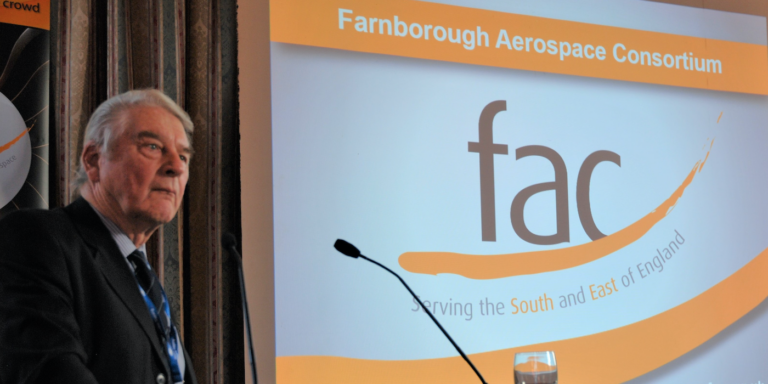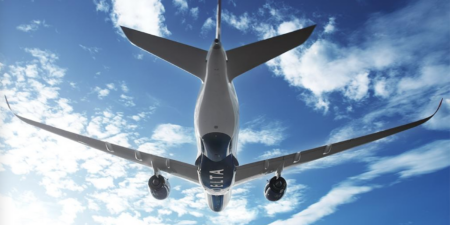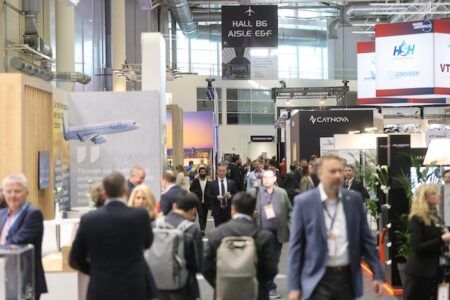The UK aerospace industry provides more than 120,000 skilled jobs and has an annual turnover of £35 billion – most of which is generated by exports. It is therefore vitally important to the prosperity of the UK and its associated partners across the world. Indeed, the UK is a world leader in many aspects of aviation and aerospace technologies
Within the UK there are regional strengths in the provision of aerospace capabilities, but one of the most active regions is the South and South East of England, with Farnborough being central.
The Farnborough Aerospace Consortium (FAC) working from the Rushmoor Council Offices represents hundreds of businesses – from prime suppliers such as Airbus, BAE Systems and Gulfstream, to many small engineering firms and other innovative companies.
Those smaller businesses in the supply chain are equally as important as the multi-national ones because of the crucial, key technologies and capabilities they provide to the rest of the industry.
The decline of these businesses as the result of the Covid-19 emergency would have a disastrous effect on the UK economy. The collapse of Flybe, just as the Covid-19 crisis began, demonstrates just how serious the impact of failures within the industry can be.
At FAC we have been urging the UK Government to protect jobs and businesses – and we welcome what it has done so far. The aerospace sector was one of the first to be affected and has been one of the hardest hit.
We are therefore calling on the UK Government for specific, targeted support for the sector’s sustainment and we have expressed our willingness to help, wherever we can. We believe it is essential that, when the restrictions are relaxed, the industry can regenerate its full working capability and capacity as quickly as possible.
We need exports to pick up where they left off, we need business people to be able to travel and we need national and international industry to be buying from our small and medium enterprises.
However, we feel that without more help we won’t be ready to resume full business activities, which would be a disaster for the workforce, their families and for the country’s economy. We have therefore urged businesses to do what they can for their staff by utilising the schemes available to help them take a longer-term outlook.
To this end, many of our members are continuing to work – we have businesses in defence who must carry on – and we must not forget them. As an example, we have also seen how engineering firms have designed, built and brought into production ventilators for the NHS.
This demonstrates the brilliance of our engineers, inventors and innovators, many of whom work in aerospace. We need to provide them with financial and administrative support.
Earlier this year when we held our annual conference there was an upbeat mood because the uncertainties generated by Brexit had diminished. We were therefore able – through our speakers – to see how the future of the aerospace industry looked in the post Brexit era.
Now the Covid 19 crisis has at the very least introduced the prospect of serious delays and the need for regeneration. When we return, the sector will push forward with its green agenda. The theme of our conference was climate change, and the businesses presenting explained how they were reacting to it.
We saw the prospect for cleaner, quieter engines and aviation fuels through massive spending on research and development targeted at understanding the industry’s environmental impact, and a more collaborative approach to all things aerospace. We will continue with emphasis on carbon neutrality – at the local level Farnborough Airport has been carbon-neutral since 2018.
For all these wonderful things to happen, we need the businesses in the sector to stay in existence, ready to re-launch as soon as they can. This all requires more Government assistance and now is the opportune time to start to provide it





